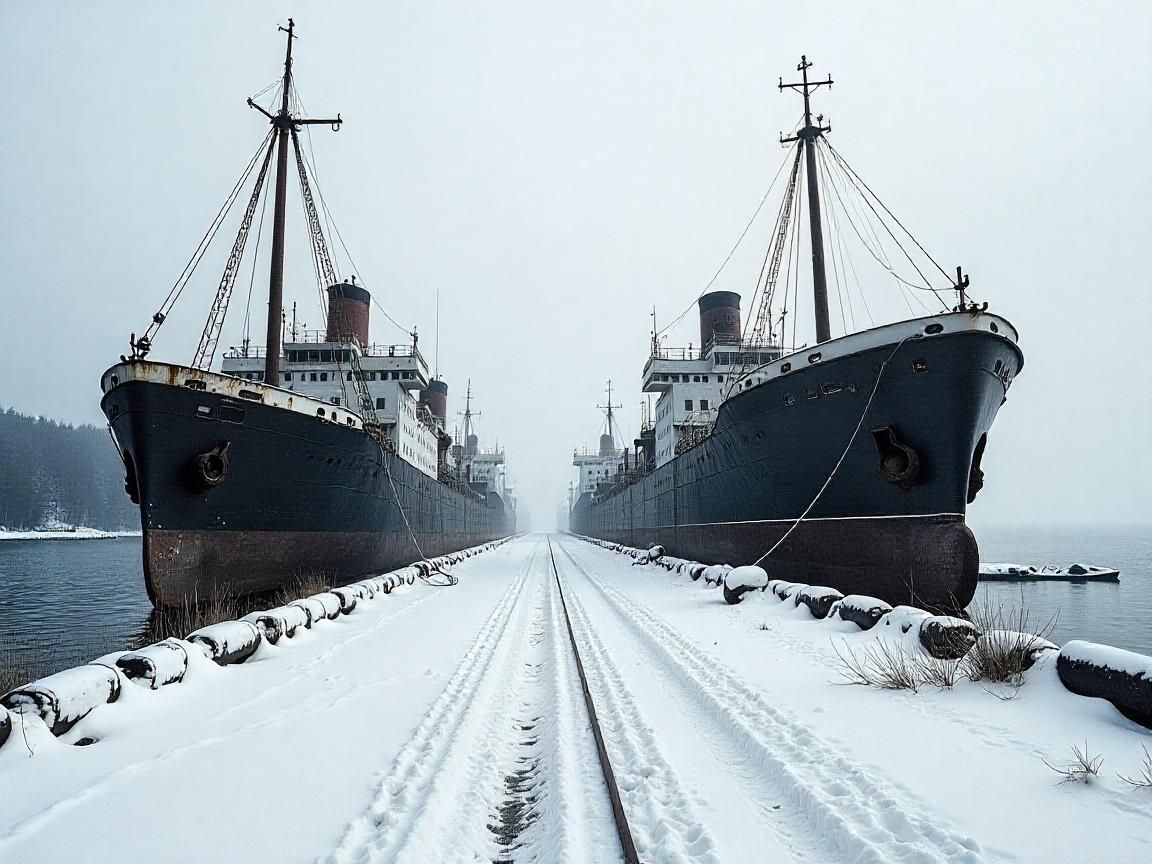The Alarming State of U.S. Shipbuilding
The ongoing decline of the American shipbuilding industry raises serious concerns regarding national security and economic stability. Recent reports indicate that a mere 0.13 percent of the global fleet are vessels constructed within the United States. In stark contrast, China fulfills a staggering 60 percent of new shipbuilding orders, highlighting a significant shift in maritime trade dynamics.
Surging Shipbuilding Capacity Abroad
China currently boasts over 200 times the shipbuilding capacity of the U.S., making it a formidable player on the international stage. Should a conflict arise in the Pacific, the U.S. currently has access to only about 15 out of the required 100 fuel tankers, leaving it severely under-prepared.
Dependence on Foreign Vessels
The repercussions of this decline stretch beyond just shipbuilding; they ripple through the logistics landscape. Most goods transported by U.S. companies utilize foreign-built vessels, predominantly owned and operated by powerful European and Asian shipping cartels. These cartels currently dominate about 90 percent of the American container shipping market.
Container Shipping Market Distribution
| Region | Market Share (%) |
|---|---|
| European Cartels | 45 |
| Asian Cartels | 45 |
| U.S. Owned/Operated | 10 |
As a result, the U.S. logistics system finds itself ensnared in an intricate web of dependence on external entities, complicating the shipping and distribution of essential goods that are often moved on trucks assembled with parts sourced overseas.
The Broader Impact of Declining Shipbuilding
The American maritime transport scenario calls for a significant overhaul of regulatory frameworks surrounding maritime transportation services and industrial capabilities. Many experts agree that unless a radical shift occurs in policies governing the maritime industry, the United States risks further erosion of its maritime capabilities, exposing vulnerabilities and economic weaknesses.
Signs of Economic Vulnerability
- Dependence on foreign vessels: A substantial portion of U.S. imports and exports is facilitated through foreign-built ships.
- Container shipping control: Dominance of foreign cartels means reduced competitiveness for American vessels.
- Lack of emergency preparedness: Inadequate resources could cripple the U.S. during conflicts or crises.
Rethinking Maritime Policies
Given the changing tides in the maritime sector, there’s an urgent requirement for the U.S. to reevaluate its approach to shipbuilding and logistics. The Open Markets Institute emphasizes that continuing on the current path will not only erode economic strength but also undermine national security.
Potential Solutions and Strategies
One of the most pressing needs is to foster a reliance on domestic shipbuilding by incentivizing investment in maritime infrastructure and technology. Additionally, policymakers must look at the restructure of existing maritime regulations to bolster U.S. shipbuilding capabilities.
The Lasting Consequences of Decline
Failing to address these pressing issues could lead to dire consequences for America’s economic prospects. As foreign entities increasingly control vital shipping routes and capabilities, the U.S. economy could very well find itself straining against an ever-tightening grip.
Grim Predictions for the Future
The decline of the shipbuilding sector serves as a warning that American exceptionalism in maritime activities is waning. As the waves of foreign competition rise, it is paramount to recognize that a robust domestic infrastructure is critical for sustaining logistical and distribution capacities.
Conclusion
The challenges facing the U.S. shipbuilding industry extend well beyond mere economic performance; they impact logistics, national security, and international competitiveness. Keeping a finger on the pulse of these developments will enable logistics specialists and companies to navigate the choppy waters ahead. Platforms like GetTransport.com facilitate this understanding by offering affordable and flexible transportation solutions. By leveraging their services, businesses can ensure reliable cargo transport, ranging from home moves to bulky freight deliveries, thus simplifying the logistics puzzle in uncertain times.
In summary, understanding the intricate relationship between shipbuilding and the broader logistics industry is vital. Even the best reviews can’t compare to firsthand experience. With GetTransport.com, users can book global cargo transportation at competitive rates, empowering informed decisions without hidden costs. The platform’s convenience, transparency, and range of options ensure every delivery remains seamless. Start planning your next delivery and secure your cargo with GetTransport.com.

